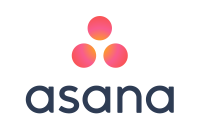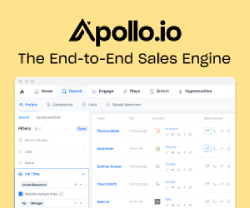
Airtable – The Flexible Platform to Build Custom Applications Without Code
Airtable is a powerful and intuitive platform that merges the familiarity of spreadsheets with the capabilities of a relational database. Designed to help teams and individuals build custom workflows, manage data, and collaborate in real-time, Airtable is a go-to solution for users who want to move beyond traditional spreadsheets without diving into complex coding or IT infrastructure.
What is Airtable?
At its core, Airtable is a no-code/low-code platform that allows users to create “bases” — essentially smart databases — to manage information. These bases can be tailored to any purpose, from managing projects and tracking inventory to planning events, organizing content calendars, and even running CRM systems. Users define their own fields, link records across tables, and use powerful views and filters to make data actionable and accessible.
User-Friendly Interface
One of Airtable’s biggest strengths is its user interface. It looks and feels like a modern spreadsheet, which makes it instantly familiar. However, beneath the surface lies a robust database structure that supports relational data, attachments, drop-downs, checkboxes, and more. Users can group, sort, and filter data easily, with no need for complicated formulas or queries.
Multiple Views for Different Needs
Airtable offers multiple views to suit various working styles and project types. In addition to the default grid (spreadsheet) view, users can switch to Kanban, Calendar, Gallery, Timeline, or Gantt views. This versatility allows teams to visualize data in the format that best supports their workflow. Whether managing tasks in a Kanban board or tracking project milestones in a timeline, users can adapt their workspace to their needs with just a few clicks.
Collaboration and Real-Time Updates
Airtable is built for collaboration. Team members can work together in real time, comment on specific records, tag colleagues, and make edits that sync instantly across all devices. Permission settings ensure that the right people have access to the right data, whether as editors, commenters, or read-only viewers. This makes Airtable an excellent tool for distributed teams, agencies, and organizations that need to maintain oversight while empowering individuals.
Automations and Workflows
Airtable includes a powerful automation engine that allows users to create simple or complex workflows triggered by changes in data. Users can send automatic emails, update records, schedule reminders, or even trigger webhooks and integrations with other platforms. These automations help eliminate repetitive tasks and keep processes consistent and efficient.
Custom Apps and Interface Designer
For more advanced use cases, Airtable includes an Interface Designer — a tool that allows users to build custom front-end experiences on top of their data. With drag-and-drop components, users can create dashboards, entry forms, or team portals without writing a single line of code. Additionally, Airtable supports scripting and extensions for those who want to push its capabilities even further.
Integrations and API Access
Airtable integrates with hundreds of third-party services like Slack, Google Workspace, Microsoft Teams, Zapier, and more. It also provides a robust API, allowing developers to connect it with other systems, build custom dashboards, or automate data transfers. This makes it easy to fit Airtable into existing tech stacks without disruption.
Use Cases
Airtable is used across industries — marketing, product development, education, media, non-profits, HR, and more. Some common use cases include:
-
Editorial calendars
-
Product roadmaps
-
Inventory tracking
-
Event planning
-
Content management systems
-
Recruitment pipelines
-
Customer relationship management (CRM)
Scalability and Pricing
Airtable offers a free plan suitable for personal use and small projects, as well as paid plans that unlock advanced features, larger data limits, and more collaborative tools. Whether you're a solo entrepreneur or part of a large enterprise, there’s a plan that fits your scale and needs.
Conclusion
Airtable empowers users to create custom applications that grow with their team and project requirements. With its unique combination of ease-of-use, flexibility, and power, Airtable stands out as a modern tool for organizing and acting on data without the complexity of traditional development platforms. It's not just a spreadsheet alternative — it's a platform for building the tools your team needs to succeed.












